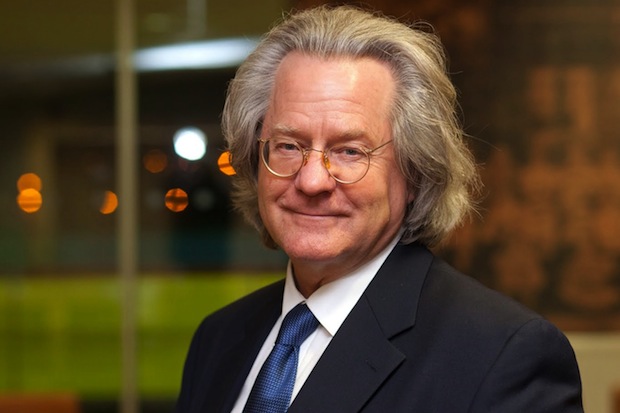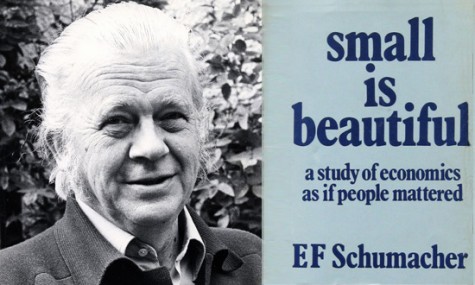
Prof. AC Grayling
Photo: spectator.co.uk
In today’s Telegraph there is an article by Prof. Grayling Outmoded university system needs to be shaken up - Telegraph where he argues that “The current university system does not work for new providers, so the government must step in to ensure real quality prevails”. The article is in response to a recent policy announcement by the UK Minister for Universities, Jo Johnson, promising a” broader vision for higher education”.
This, Prof. Grayling believes” will be very welcome to all those trying to bring new ideas into higher education. This is a sector that in too many respects has become outdated and closed, unwelcoming to new entrants, offering programmes many of which have remained basically unchanged for a century or more — except that they are now taught to far larger numbers of students in crowded lecture theatres.
“The government has identified innovation as an important matter. But we do not have a system that supports innovation: rather, the opposite. Mr Johnson observed that the current HE system is, at root, anti-competitive. No institution can succeed if its students cannot have access to government-supported loans and if it cannot recruit overseas candidates. But for a new institution to achieve this, it must be “validated” by an incumbent institution. Mr Johnson has likened this to Byron Burgers asking McDonalds for permission to operate.”…
I thought I should and indeed must make a response to this article, being an academic myself with equally many years of experience, journey and observation of higher education sector, universities and more. Please see below:
Dear Prof. Grayling,
Thank you for sharing “your” perspective about higher education with us. I believe you to be a wise and informed observer. However, before we get too involved with “innovation” more “privatisation/liberalisation”, “equality”, “quality”, “competition”, “cooperation”, or if Byron Burgers should be “validated” by McDonalds, like your new university is “validated” by the University of London, if I am not mistaken, I wish to hear more from you on questions, such as the ones below:
1-What is education?
2-What is knowledge?
3-What is information?
4-What is wisdom?
5-What is life?
6-What is success?
7-What is failure?
8-What is to be rich?
9-What is to be poor?
10-What is love?
11-What is hate?
12-What is happiness?
13-What is sadness?
14-What is nature?
15-What is a good job after university?
16-What is a university?
Moreover, what do you think about the following:
"*Where is the life we have lost in living?
*Where is the wisdom we have lost in knowledge?
*Where is the knowledge we have lost in information?"-T.S. Eliot
Because you see, dear Prof Grayling, all the discussions about education is about the shallow matters, it does not go deep enough to address the fundamental questions, such as the ones I have noted above.
Please allow me to quote you a passage from recent comments I made at the Graduate Institute of International and Development Studies in Geneva on the role and functions of higher education and universities, very relevant to your article and my response to it:
I said:
“When I look all around me, it breaks my heart to see despite so many gifts that we have been given in this life, to be happy, to lead a good and worthwhile lives, we have abused these gifts and have created such a miserable world, the world of multiple, continuing and deepening crises. Why?”
I then said:
“When I was a young lad, our elders used to tell us that education is a path to wisdom. Education will empower you to take action in the interest of the common good. It will enable you to build a better world, a world of peace, harmony and prosperity for all.”
I then continued that our elders also used to say that:
“Educators, too, are here to make a difference: To do something meaningful and to leave a legacy that guides future generations to take action in the interest of the common good, building a better world. Educational leaders should seek to create cultures where people learn together and lead together to create real and deep sustainable change.”
I then concluded my remarks by asking:
“Then why is it that with millions and millions more “educated” people in the last few decades, the world is in such a mess, misery and continuing into deepening crises, etc, etc?
What we see is not a sign of wisdom, but stupidity, ignorance and arrogance, I said. Don’t you think, it is time, we all come together and think very carefully, what education is, what has gone wrong and what ought to be done?”
Wow! The reaction to my comments in the hall, the continuing conversation during the reception afterwards and the stream of emails I have received since, has been very humbling to me. I firmly believe that this is a challenge to every one of us, a challenge that we must rise to if we are serious about values-driven education.
You can read more:
Responsible Leadership in Action, Geneva, June 2015
Economics, Globalisation and the Common Good: A Lecture at LondonSchool of Economics
What is a University?
https://gcgij.files.wordpress.com/2014/11/whatisauniversity.pdf
Thank you.
For Your Reflection: Wisdom from a truly Wise Teacher

Photo: neweconomics.org
“Schumacher’s Small is Beautiful is an appeal to the deep instinctive understanding of the common good that all people share. It is an appeal to our essential humanity. It deals with some of the most pressing concerns of people the world over, concerns which every generation must consider and answer. It is written in the hope of inspiring idealism and the desire to give the practical help the world so greatly needs. The book encourages us to reflect on and to understand things we all seem to have forgotten: What is Education? What is Knowledge? What is Wisdom? What is the source of true happiness and well-being? What is the good life? What is the purpose of economic life? What does it mean to be a human being living on a spaceship with finite resources? What paths can be recommended to shift the current destructive global political-economic order from one of unrestrained economic growth, profit maximisation and cost minimisation, to one that embraces material wealth creation, yet also preserves and enhances social and ecological well-being and increases human happiness and contentment?
I discovered Schumacher and “Small is Beautiful” in 1979. To be precise: on August 11, 1979. I had written the date I purchased the book on the first page. At that time I was an undergraduate studying economics at the University of Windsor, Ontario, Canada.
When I saw the book in the window of a second-hand book shop, I was, very much intrigued by the title and also the sub-title Economics as if people mattered which caught my imagination. Thus, I bought the book and began to read it immediately. I could not put it down and finished it in a few days.
For sure I didn't understand every word, indeed I suspect I was lost at times, but it thrilled me. Here was a new way of looking at many questions in my head about economics and the economy, an approach that I felt in my enthusiasm was so absolutely right that it couldn't possibly be opposed. I was instantly converted to a new way of looking at my personal life as well as the socio-political and economic concepts. I suspect I became a `small is beautiful' man!
Schumacher’s thoughts have never left me. Yes, I moved on, put the book to one side and no doubt compromised. Recently however, I've gone back to it. I have realised that its insights are more relevant than ever. I know again, as I did 32 years ago, that Fritz Schumacher was absolutely right and I hope that, in a modest way, we are being worthy of his legacy.”…
Small is Beautiful: The Wisdom of E.F. Schumacher
